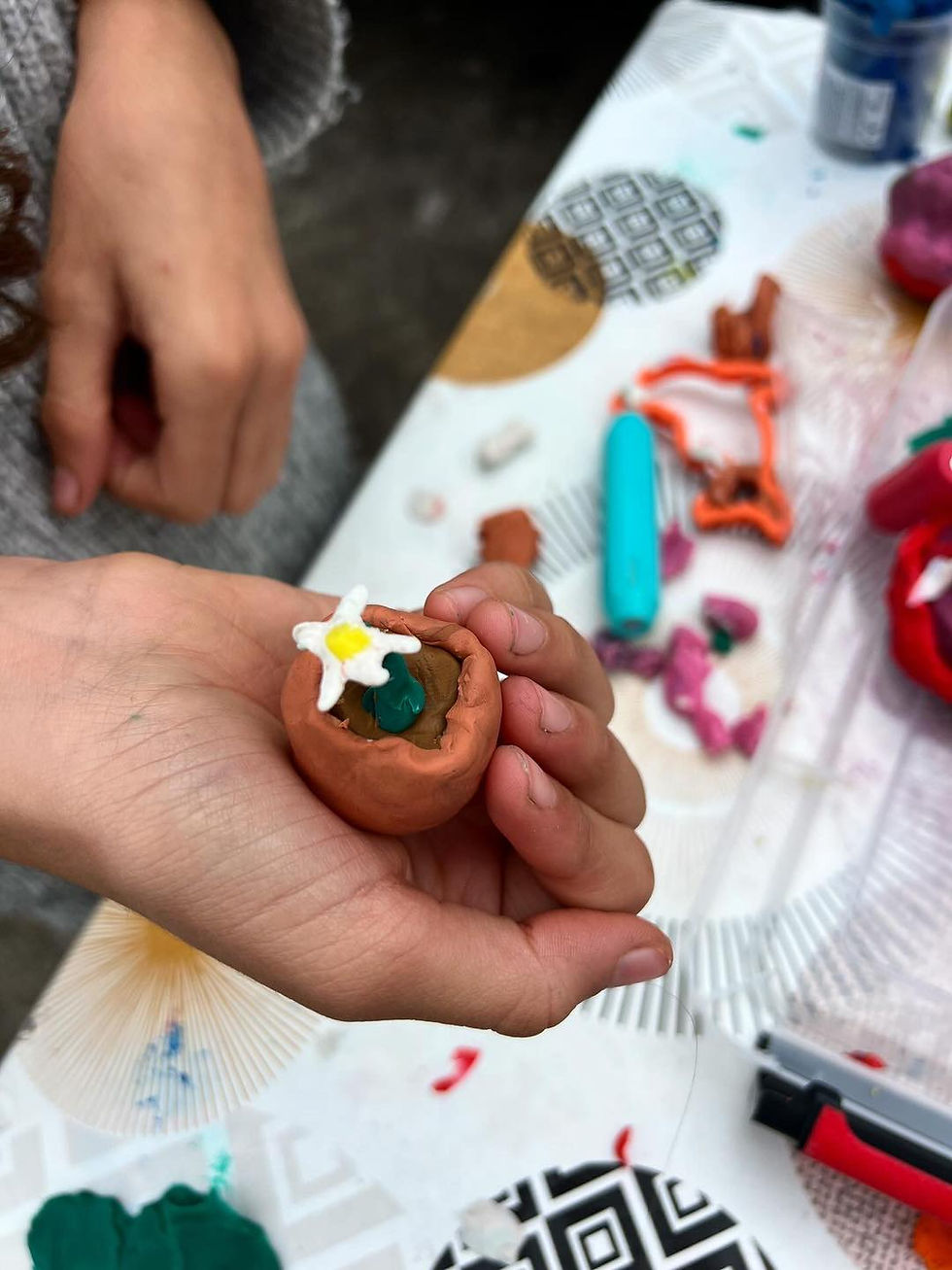The end of the line
- Art Refuge

- Oct 21, 2016
- 3 min read
Calais

We arrived in to a multi service child protection meeting, which highlighted the sense of disempowerment of residents and the services working with them, having had no clear updates about the plans for the eviction or how to ensure the safety of children and young people in particular. Having hoped the delay of the eviction was in response to a request for more time to prepare safely and collaboratively in order to best support residents, no more information had been given on where people will be moved to, or when or how this would happen.
We heard about NGOs and local services feeling vulnerable – their safety but also their longstanding, trusted relationships with residents compromised due to not being able to offer more clarity or reassurance. In CAMIE there were regular jokes made about who was ‘bambino’ and who wasn’t. Individuals in part hoping that their childhood would offer them more support – aware of the work being done to safeguard children and young people in the eviction – but also finding the suppression of their adult-selves uncomfortable, shaming and frustrating.
Other young men seemed keen to huddle close – be physically close and allow themselves to be mothered. Having lost materials to a series of break-ins, we all sat close around low benches and worked with small pieces of paper, pocket sketch books and basic pens and pencils. Many tiny sketches developed over page after page, often floating alone in sketchbooks which would be held close in hands and on edges of the makeshift table in to the afternoon, before being left to be gathered and kept safe.
A small group of new arrivals initiated working with the modelling clay and another incredible collection of multicoloured animals appeared; mothers with feeding children; a camel being precariously ridden by a pair of figures; a series of animals with homes on their backs – a pair of turtles and a pair of snails. It felt significant that we had quite limited resources to work with, but the group continued determined, getting what they needed from the space. Both inside and outside the container was damp and dark, with several heavy rainfalls bringing the group closer together around the table and others joining to take shelter from the storm. We acknowledged the view out and sounds on the roof being similar to being at sea.
Many young men wore only flip-flops, those newly arrived from Sudan particularly struggling with the cold. Some so desperate for information about the eviction or where to find warm shoes that they stood patiently in the rain trying to find answers from Refugee Youth Service, who tried to continue to be present around the space.
On Friday in the Médecins du Monde tent, it felt as though once residents joined us they didn’t leave for the full afternoon. There was more searching for answers but also long periods of quiet art-making sitting side by side, as if hoping to feel active, alive; with purpose and agency. Music managed to drown out silence and support more vulnerable moments, where the looming eviction seemed to impact peoples’ ability to find spoken language to express themselves.
We assured individuals that we have come to know well and who come to see us for much needed support, that we would continue to do our best to be present and thinking of them over the coming weeks. It was hard for people to leave at the end of the day, with a number of young men delving deep in to the dictionaries they were invited to take with them for ways of expressing heavy emotions. There were many goodbyes and these were full of loss and sadness for us all.



Comments